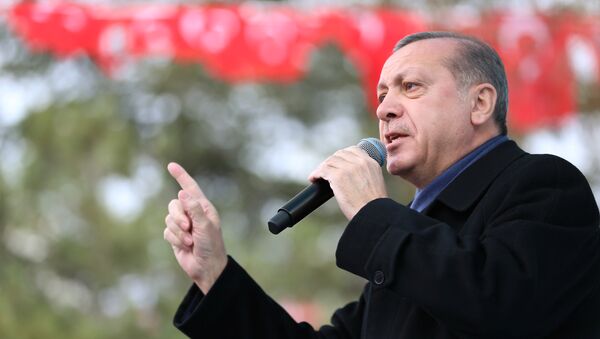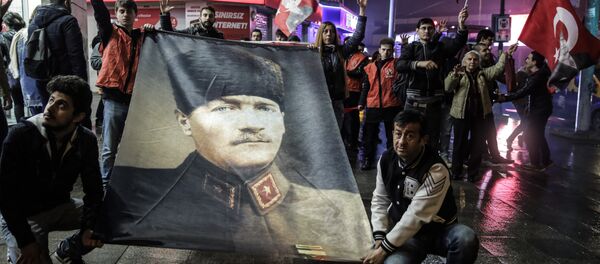Işıkara explained that the Turkish president can now single-handedly appoint the Cabinet of Ministers. He can also choose 12 of the 15 judges on the Constitutional Court.
"Many people have got the impression that Erdogan is practically lifting or undoing the division of powers," Işıkara told Loud & Clear host Becker.
In combination with the president's power to issue decrees which have the force of law, Erdogan has gathered all three branches of power in his hands, Işıkara noted.
But just how free and fair was this vote?
According to Işıkara, since the failed coup in Turkey last year, those in the political opposition have been demonized as enemies of the state.
"The ‘No' campaign has been deliberately curtailed. Many people were detained," Işıkara said, adding that hundreds of thousands of people with dissenting views were forced out of public positions in the wake of the coup attempt.
Işıkara also claimed that massive voting fraud took place, as opposition parties reported that between 1.5 and 2.5 million votes that were counted for the "Yes" campaign had no official stamp from the Voting Committee, as required by law.
Significantly, only Middle Eastern allies, such as Bahrain and Azerbaijan, officially congratulated Erdogan with his victory. At the same time, Işıkara noted, Turkey's strategic Western friends (i.e. NATO countries) deliberately refrained from doing so.
[Since this interview was conducted, both the presidents of the US and Russia have offered their congratulations.]
Erdogan does not seem surprised with the West's tepid response — in fact, he's largely made the West out to be an aggressor in speeches dating back to before the coup attempt. His rhetoric, aimed at his own citizens, conjures up more and more enemies, both at home and abroad, as a factor to unite the nation, Işıkara noted.
"It has become evident that Erdogan has difficulties producing consent. So his main weapon has become this sort of chauvinistic stories," Işıkara said.
According to him, Erdogan maintains that the Turkish nation is "awakening" as a major power, and that all other global players are so afraid of Turkey that they are constantly trying to undermine his regime.
"Before every major election he's made it very clear that it is going to be either [him] or chaos," Işıkara told Becker.



